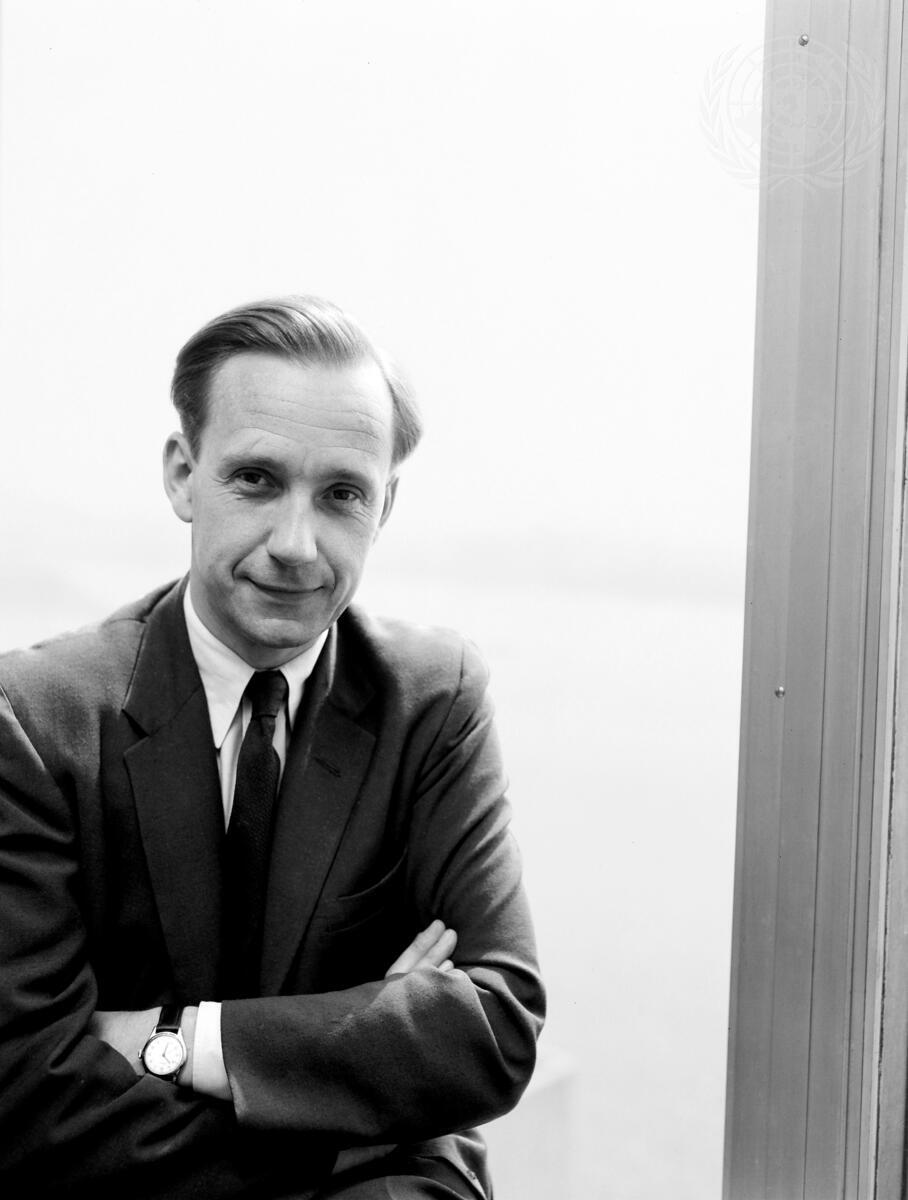
Brian Urquhart: The Third Guest at My Luncheon

When I first joined the AMUN Secretariat, I was asked what three people, dead or alive, that I would want to have a luncheon with. At the time, I had only two people on my guestlist: Michelle Obama and Jeremy Wade. Now, nearly 6 years after being asked at my first Labor Day training weekend, I have a third guest for my luncheon, Sir Brian Urquhart — a WWII veteran, creator of the UN Peacekeepers and celebrated author.
Sir Brian Urquhart (pronounced IRK-it), who was born on 28 February 1919 in Bridport, Dorset, United Kingdom, was at Christ Church, Oxford when WWII broke out. He joined the army and became an officer with the Dorset Regiment. However, before his unit could deploy, France fell to Nazi forces. During his military training, his parachute malfunctioned; he plunged into a field and was told he may never walk again since he had broken the majority of his bones. But, since Urquhart was possibly the embodiment of force of will, he was back up on his feet again and on his way to north Africa.
While Urquhart had a very distinguished and celebrated military record, at my luncheon, I would steer the conversation towards his United Nations career, as he was a member of the team that built the foundation of the UN and a former Under-Secretary-General. On 1 February 1946, the first Secretary-General, Trygve Halvdan Lie (for whom Urquhart had no love lost at all), was sworn in by the General Assembly. Urquhart worked as his assistant and went with Lie to New York City to handle the logistical and administrative work of building the United Nations headquarters. Dag Hammarskjöld, the second Secretary-General, appointed Urquhart as his primary advisor. The pair worked together until the death of Hammarskjöld in September 1961 when Hammarskjöld’s plane crashed in Congo while on a peace mission. Urquhart went on to serve as the Under-Secretary-General of Special Political Affairs from 1974 to 1985, for Kurt Waldheim and Javier Pérez de Cuéllar.
The UN Peacekeepers was created during a time when the Cold War paralyzed the world and subsequently, the Security Council. In 1956, during the Suez Crisis, Urquhart took the reins on how to peacefully remove Israeli, British, and French forces from the Sinai Peninsula. It was during this crisis that the iconic blue helmets were designed. First suggested as blue berets, Urquhart recommended painting existing helmets blue when it appeared that it would take 6 weeks to receive berets. Urquhart went on to oversee 13 more peacekeeping missions, including a mission to Congo where he was kidnapped and tortured by Katangese troops and was rescued by UN Gurkha forces.
Until his retirement in 1986, Urquhart oversaw the majority of the peacekeeping missions in the Middle East, Cyprus, Namibia, Kashmir and Lebanon. Shortly before his retirement, he was knighted by Queen Elizabeth II. Post retirement, Urquhart wrote a number of books while at the Ford Foundation. His books included a memoir, books explaining aspects of the UN and a biography of Ralph Bunche, another UN political Under-Secretary-General.
Sir Brian Urquhart passed away at 101 years of age on 2 January 2021 in Tyringham, Massachusetts, USA. He is survived by his second wife, 4 children, 14 grandchildren, and 10 great-grandchildren. He lived a life that would rival any silver screen hero, and, should I find a restaurant to host my luncheon, my other guests and I would love to hear more.
Keep Up With The Accords
More to read
The AMUN Accords is a premier resource for fact-based Model United Nations simulations. We are always looking for new contributors. Want to write for the AMUN Accords? Check out out the submission guidelines and then get in touch!




